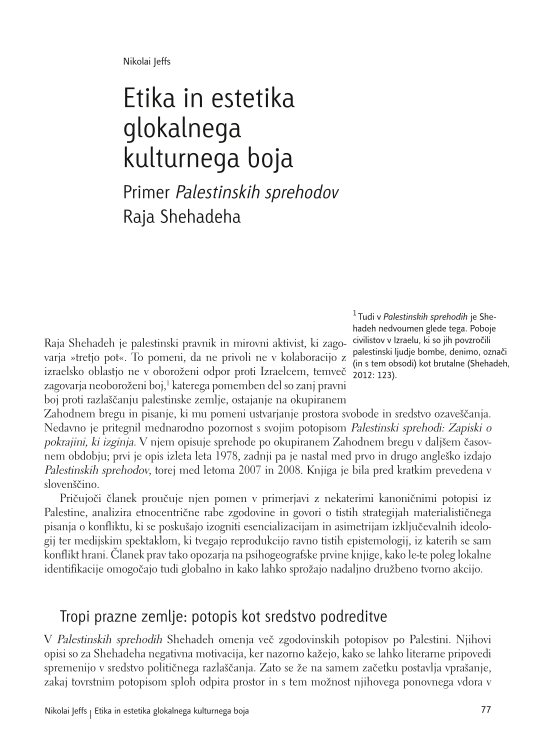This article first explores how Palestinian Walks: Notes on a Vanishing Lanscape overturns some of the conceptions of canonical works of travel writing on Palestine, especially the trope of the »empty land«. After this it draws attention to how the narrative avoids the asymmetry of exclusionary ideology and what kind of more materialistic strategies in the representation of Palestinians and Jews it deploys and so as to avoid the reproduction of precisely that epistemology that also motivates the Israeli-Palestine conflict. Some of the psychogeographical elements of the book are also mentioned and the ways in which these, despite being local, nonetheless allow for global identification and socially productive action. This is analysed through the concepts of the »decompression of time and space« and »glass doors«. In addition, Palestine Walks can also be read as an answer to dominant anglophone media images of Israel/Palestine.




